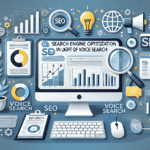Wondering how to develop a growth mindset and why it is important? In today’s fast-paced and ever-changing world, having a growth mindset is more important than ever. The power of a growth mindset lies in its ability to shape our thoughts, actions, and ultimately, our outcomes. But what exactly is a growth mindset? It is the belief that our abilities and intelligence can be developed through dedication, effort, and a willingness to learn.
Contrastingly, a fixed mindset sees abilities and intelligence as fixed traits, leaving little room for improvement or development. By understanding the difference between these two mindsets, we can unlock the full potential of our abilities and achieve greater success.
Developing a growth mindset comes with a multitude of benefits. It opens doors to new opportunities, fosters resilience in the face of challenges, and enhances personal and professional growth. With a growth mindset, we embrace challenges, cultivate a positive attitude, seek continuous learning, persist through obstacles, and build a supportive environment.
In the following sections, we will delve deeper into each aspect of developing a growth mindset and discover practical strategies to adopt this transformative mindset in our lives.
Ways to Develop a Growth Mindset
Embracing Challenges
Embracing the Unknown: Stepping Out of Your Comfort Zone
Life begins at the end of your comfort zone. Stepping out of your familiar surroundings and venturing into the unknown is a crucial step in developing a growth mindset. It’s natural to feel apprehensive about leaving the comfort of what we know, but growth and self-improvement lie just beyond those boundaries.
Viewing Challenges as Opportunities for Growth
Instead of shying away from challenges, it’s essential to reframe them as opportunities for personal growth. Each challenge we encounter is a chance to expand our skills, knowledge, and capabilities. By embracing challenges, we stretch ourselves beyond our perceived limits and discover our true potential.
Overcoming Fear of Failure: Learning from Setbacks
Failure is not a permanent state but a stepping stone towards success. It’s common to fear failure and its associated setbacks, but a growth mindset allows us to view failures as valuable learning experiences. Embracing failure as a teacher grants us the opportunity to analyze what went wrong, adjust our approach, and come back stronger and wiser.
Cultivating a Positive Attitude
Shifting from Negative Self-Talk to Positive Affirmations
The way we speak to ourselves matters. Negative self-talk can hold us back and hinder our growth. To develop a growth mindset, it’s crucial to replace self-doubt and criticism with positive affirmations. By consciously shifting our internal dialogue to focus on our strengths, abilities, and potential, we build a foundation of self-belief that propels us forward.
Recognizing and Celebrating Small Wins
In the pursuit of our goals, it’s easy to overlook the progress we make along the way. Cultivating a growth mindset involves acknowledging and celebrating even the smallest wins. Each step forward, no matter how small, is a testament to our efforts and dedication. Recognizing these achievements boosts our confidence and reinforces the belief that continuous improvement is possible.
Fostering Optimism and Resilience
Optimism is a powerful mindset that fuels growth. By choosing to see the glass as half full, we approach challenges with a proactive and solution-oriented mindset. Resilience goes hand in hand with optimism, allowing us to bounce back from setbacks and persevere in the face of adversity. Cultivating these qualities requires practicing gratitude, reframing negative situations, and seeking opportunities for growth in every circumstance.

Embracing Continuous Learning
The Importance of Lifelong Learning
In a rapidly evolving world, the quest for knowledge should never cease. Embracing continuous learning is a fundamental aspect of developing a growth mindset. Recognizing that there is always more to discover and learn opens up endless possibilities for personal and professional growth. By adopting a mindset of curiosity and a thirst for knowledge, we expand our horizons and stay adaptable in a changing landscape.
Seeking Feedback and Constructive Criticism
Feedback is a powerful tool for growth. Instead of shying away from criticism, individuals with a growth mindset actively seek feedback to understand their strengths and areas for improvement. Constructive criticism provides valuable insights and allows us to refine our skills and approaches. By embracing feedback with an open mind and a desire to learn, we foster a growth-oriented mindset that propels us forward.
Developing a Curiosity for New Ideas and Perspectives
Curiosity is the fuel that ignites our desire to learn and explore. Developing a growth mindset involves cultivating a genuine curiosity for new ideas and perspectives. By exposing ourselves to different viewpoints, we broaden our understanding of the world and challenge our existing beliefs. Embracing diverse perspectives helps us see opportunities and solutions that we may have otherwise missed, enabling continuous growth and innovation.
Persistence and Effort
The Role of Effort in Success
Success is not solely determined by innate talent or abilities. Effort plays a pivotal role in achieving our goals. A growth mindset recognizes that hard work, dedication, and consistent effort are essential ingredients for success. By understanding that our abilities can be developed through effort, we approach challenges with a determination to put in the work required to reach our desired outcomes.
Developing Grit: Persevering Through Obstacles
Obstacles and setbacks are inevitable on the path to success. Developing grit, the ability to persevere through difficulties, is a key characteristic of a growth mindset. Rather than giving up in the face of adversity, individuals with a growth mindset view obstacles as opportunities for growth. They exhibit resilience, tenacity, and an unwavering commitment to overcome challenges, continually pushing forward despite setbacks.
Harnessing the Power of “Yet”: Embracing a Growth Mindset Journey
The word “yet” holds tremendous power in the context of a growth mindset. When faced with a challenge or a skill we haven’t mastered, adding “yet” to our statements can transform our mindset. For example, instead of saying, “I can’t do it,” we can say, “I can’t do it yet.” This simple shift acknowledges that our abilities are not fixed, and with time, effort, and learning, we can develop the skills we desire. Embracing this growth mindset journey is about embracing the process of growth and understanding that mastery takes time.

Build a Supportive Environment While You Learn How to Develop a Growth Mindset
Surrounding Yourself with Like-Minded Individuals
The people we surround ourselves with greatly influence our mindset and aspirations. Building a supportive environment involves seeking out like-minded individuals who share our passion for growth and learning. Surrounding ourselves with positive, motivated individuals creates a synergy that propels us forward. These like-minded individuals can provide encouragement, support, and valuable insights, fostering an environment that nurtures our growth mindset.
Seeking Inspiration from Mentors and Role Models
Mentors and role models play a crucial role in our personal and professional development. They offer guidance, wisdom, and inspiration derived from their own experiences. Seeking out mentors and role models who embody a growth mindset can provide us with valuable lessons and perspectives. Learning from their journeys and observing their habits can fuel our own growth and motivate us to strive for greatness.
Collaborating and Learning from Others
Collaboration and learning from others are powerful catalysts for growth. When we collaborate with individuals who possess different skills and perspectives, we expand our own knowledge and understanding. Collaboration allows us to tap into collective intelligence and unlock innovative solutions. By embracing diverse perspectives and being open to learning from others, we accelerate our own growth and contribute to the growth of those around us.
Learn more about how to improve self-discipline for further knowledge.
Differences Between “Fixed” and “Growth” Mindset
| Fixed MindsetFixed Mindset | Growth Mindset | |
| Beliefs | Abilities and intelligence are fixed traits. | Abilities and intelligence can be developed through effort and learning. |
| Response to Challenges | Avoids challenges and views them as threats to self-worth. | Embraces challenges as opportunities for growth and learning. |
| Effort | Believes effort is fruitless if one doesn’t possess natural talent. | Recognizes that effort is necessary for growth and mastery. Values hard work and perseverance. |
| Feedback | Takes feedback personally and may feel defensive or discouraged by criticism. | Seeks feedback as a means to learn and improve. Embraces constructive criticism as an opportunity for growth. |
| Success | Views success as the result of innate talent or luck. | Views success as a product of hard work, learning, and resilience. Celebrates the achievements of others. |
| Obstacles | Gives up easily when faced with obstacles or setbacks | Persists through obstacles, learns from failures, and adjusts strategies accordingly. |
| Learning | Avoids new challenges to protect self-image. | Embraces continuous learning, seeks new knowledge and skills, and thrives on personal development. |
| Perspective | Prefers to stay within the comfort zone, avoiding risks and change. | Embraces change, takes calculated risks, and seeks new experiences for personal growth |
| Achievements | Feels threatened by the success of others. | Celebrates the success and achievements of others, using them as inspiration and motivation. |
Benefits of Developing a Growth Mindset
Now that you have learned how to develop a growth mindset, it is time to know about it’s benefits. Developing a growth mindset has numerous advantages that can positively impact various aspects of our lives. Let’s explore the key benefits of cultivating a growth mindset:
Increased Resilience
A growth mindset fosters resilience, allowing us to bounce back from setbacks and face challenges head-on. Rather than viewing failures as the end of the road, we see them as opportunities for growth and learning. This resilience enables us to persevere through obstacles and maintain a positive attitude, ultimately leading to greater personal and professional success.
Continuous Learning and Improvement
A growth mindset fuels a thirst for knowledge and a desire for continuous learning. We become open to new ideas, seek feedback, and actively pursue opportunities to expand our skills and understanding. This mindset of constant improvement enables us to stay adaptable in an ever-changing world and continually develop our abilities.
Expanded Creativity and Innovation
By embracing a growth mindset, we break free from self-imposed limitations and tap into our creative potential. We become more willing to take risks, explore new possibilities, and think outside the box. This mindset shift fosters innovation and allows us to approach problems from different angles, leading to unique solutions and breakthroughs.
Greater Confidence and Self-Belief
A growth mindset cultivates a strong sense of self-belief and confidence. By recognizing that abilities can be developed through effort and learning, we approach challenges with a sense of optimism and belief in our capacity to overcome them. This confidence empowers us to take on new opportunities, step out of our comfort zones, and achieve our goals.
Improved Relationships and Collaboration
Adopting a growth mindset not only benefits us individually but also enhances our relationships with others. We become more open-minded, receptive to feedback, and willing to collaborate. This fosters a positive and supportive environment where we can learn from and inspire one another, leading to stronger relationships and collective growth.
Increased Motivation and Goal Achievement
A growth mindset fuels intrinsic motivation and a sense of purpose. We become more driven to set meaningful goals and work towards them with determination and perseverance. As we witness our own progress and growth, we experience a sense of accomplishment that further fuels our motivation to strive for even greater achievements.
Growth Mindset Examples
Understanding the concept of a growth mindset is important, but seeing it in action through real-life examples can truly inspire and motivate us. Let’s explore some examples of individuals who have embraced a growth mindset and achieved remarkable success:
Thomas Edison: The famous inventor and creator of the practical electric lightbulb faced countless failures and setbacks before finally achieving success. His growth mindset allowed him to view each failure as a learning opportunity, famously saying, “I have not failed. I’ve just found 10,000 ways that won’t work.” Edison’s persistence and unwavering belief in his ability to learn and improve led to his groundbreaking inventions.
Oprah Winfrey: From a challenging childhood to becoming one of the most influential media moguls, Oprah Winfrey embodies a growth mindset. She overcame obstacles, embraced continuous learning, and used her setbacks as stepping stones to success. Through her talk show, book club, and philanthropic efforts, Oprah inspires millions to believe in their potential for growth and transformation.
Elon Musk: As the visionary entrepreneur behind SpaceX, Tesla, and other groundbreaking ventures, Elon Musk exemplifies a growth mindset. Musk constantly pushes the boundaries of innovation, embracing failures and setbacks as opportunities for improvement. His relentless pursuit of knowledge, willingness to take risks, and determination to solve complex problems showcase the power of a growth mindset.
Carol Dweck: The researcher behind the concept of fixed and growth mindsets, Carol Dweck herself demonstrates the power of embracing a growth mindset. Through her studies and writings, she has inspired countless individuals to believe in their ability to grow, learn, and achieve their goals. Dweck’s work highlights the transformative impact a growth mindset can have on personal and academic success.
Conclusion
The journey towards developing a growth mindset is one of self-discovery and personal growth. By embracing the belief that our abilities can be developed through effort and learning, we unlock the transformative power of a growth mindset. It allows us to break free from self-imposed limitations, view challenges as opportunities for growth, and persist through setbacks.
By implementing growth mindset strategies in our daily lives, such as shifting our self-talk, embracing continuous learning, and surrounding ourselves with supportive individuals, we unleash our full potential. With a growth mindset, we can achieve personal and professional success, create positive change, and lead a fulfilling and purposeful life.








